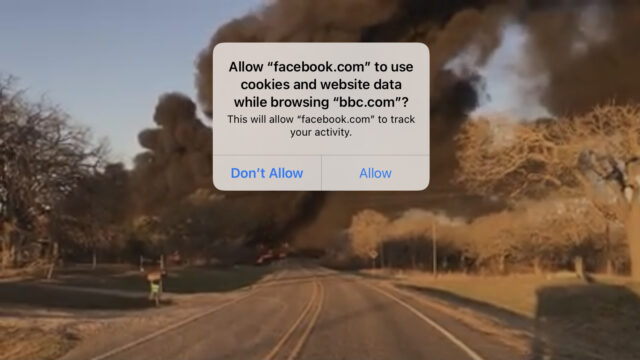On Feb. 23, 2021, a news story from BBC Online about an explosion following the collision of a freight train and 18-wheeler riveted my attention. An early version of the report offered video footage embedded from Facebook (additional media is available in the linked version that you can click). I tapped the play icon on my tablet, which got the video going but also an overlaying message requesting permission for the social network “to use cookies and website data while browsing BBC.com”. Hell no, FB CEO Mark Zuckberg’s zombie-bots aren’t allowed to track my activity. Give blanket permission for all the Beeb? Eh, no.
Dirty bird! Pressing “Don’t Allow” stopped the video playing. Not once, but every time—and I confirmed the behavior on my laptop browser today. If you think the Internet is free, I got some swamp land in Florida to sell you right now. I don’t own it and you wouldn’t want it, but if you’re gullible enough to think social networks and other content-rich sites give you something free without taking something more, let’s you and I make a swamp deal. You are tracked, your browsing behavior is catalogued, and advertisements are targeted based on your online activities. That’s the Facebook Way.

